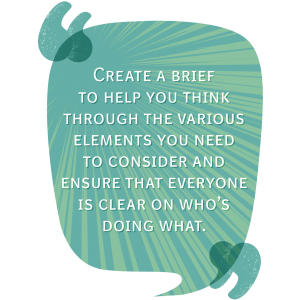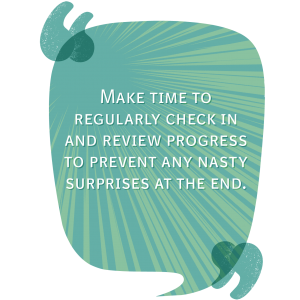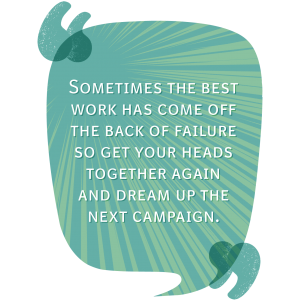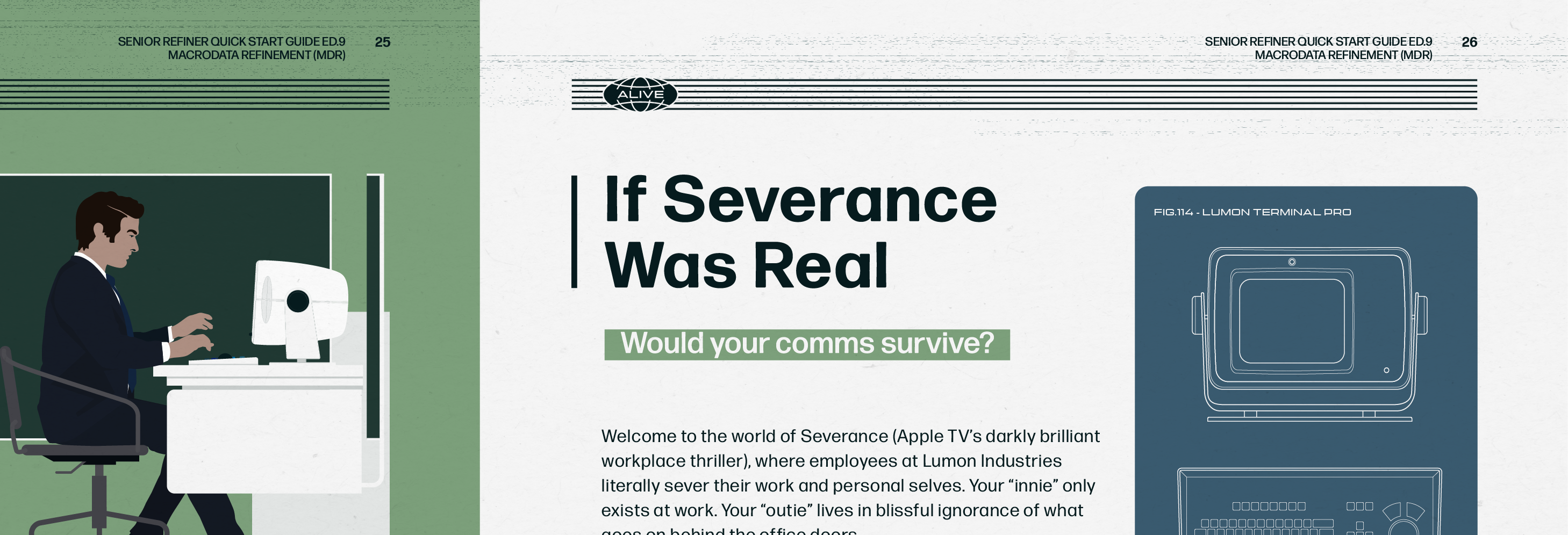Internal comms is all about relationships.
Sadly they can quickly sour when work doesn’t meet our great expectations. But it doesn’t have to be that way…
Often, our success as internal communicators can hinge on the relationships we have with internal or external colleagues. It requires trust, co-operation, listening and often patience – especially in the chaotic times we live and work in, where every project feels urgent and the stakes exceptionally high.
So, when you feel like all those elements are in place, it can be demoralising when a piece of work we’ve poured our heart and soul into doesn’t quite hit the mark. Or something we’ve received falls below our expectations.
But, whether you’re in-house or agency, there are steps we can take to ensure we avoid some of the more common pitfalls…
Create a briefing document
Time is a luxury we rarely have so not creating a brief is completely understandable; there are deadlines to be met and there’s no time to waste. You’ve had a conversation, and everyone seemed to understand. But did they?
Creating a brief at the beginning can save you lots of time later. It helps you think through all the various elements you need to consider (because a brief can be as much for you as it is for the person/people you’re briefing) and ensure that everyone is completely clear on who’s doing what when and what the final outputs and outcomes need to be.
Another benefit is that it serves as a good sense checker to refer to if the project scope starts to slip.
Build a collaborative client-agency relationship
Having worked both agency and in-house I would fully recommend that internal comms pros experience both worlds to see what it’s like on the other side.
From an in-house perspective, agencies can fall short of expectation because they’re seen as a resource rather than a partner. You get the best out of creative minds by involving them early on, seeking their input and collaborating rather than simply telling them what you need.
If you’re in-house and working with an agency, it’s also important to understand what the impact is when timelines slip. It can be tempting to think that you’re their only client, but the reality is that they’ll have multiple clients that they’re juggling, and they won’t always be able to accommodate last minute requests.
And agencies can get frustrated with in-house clients as it seems the goalposts are constantly moving. But rarely is that the fault of the client, they’ll be managing multiple stakeholders and working against a backdrop of constant change. Understanding that wider context early on enables agencies to support their clients more effectively by managing expectations on both sides.
Keep talking
Making time to regularly check in and review progress is a great way to ensure there are no surprises at the end. It sounds obvious but when you’re managing multiple projects it’s not uncommon to have the briefing session and then not come back together again until you’re unveiling the final output.
It’s a risky approach and can be easily avoided by keeping lines of communication open, creating a relationship and environment where people feel able to ask questions and double check their understanding without fear of being judged.
Ways of working
Recognise when there are multiple personality types involved in a project or campaign and understand how you get the best out of each other. Firing off an email with a list of amends might work for some people, but others need an opportunity to ask questions and clarify. Some prefer a written brief to a spoken brief.
Don’t assume your default way of working suits everyone else – spend time up front establishing ways of working for the project or campaign that everyone signs up to.
Be respectful
Watch out for setting unreasonable timescales or working practices. While you might be happy to work until 8pm in the evening, putting that expectation on others can lead to bad feeling.
There will always be situations where deadlines are beyond our control and can often move without warning. But rather than expecting other parties to drop everything to meet it, recognise that it maybe isn’t realistic and instead work together to discuss what the options are in the time that you have.
Having honest conversations is important. Remember, that when you’re asking people to work to tighter timescales than originally agreed, they might not only produce a poorer quality output, but it can also impact the work they’re doing for others. They might also inadvertently breach the industry body code of conduct that they belong to (for example, CIPR expects members to always deliver to the highest standards of quality).
Failure isn’t the end of the world
Sometimes projects or campaigns don’t work out and no one particular party is to blame. It doesn’t mean you have to write off that agency, client or colleague for ever more.
Part of being bold and trying new things means being prepared to fail and learn and doing it alongside people you can trust not to throw you under the bus at the first sign of a problem or wash their hands and walk away from it leaving you to deal with the fallout alone.
Sometimes the best work has come off the back of failure so get your heads together again and dream up the next campaign, applying everything you learnt from the last one.
We’re all human
We’re all human – we make mistakes and have off days whatever side of the fence we’re on. Bringing empathy and understanding into working relationships creates more positive environments where people can be at their best, rather than waste time worrying over a mistake. Acknowledge it happened, fix it and move on.
If we’re to create great working relationships that result in outcomes that meet our great expectations, we need to put the work in up front. Be clear what expectations are on both sides and put yourselves in each other’s shoes. And don’t forget to enjoy it and celebrate the successes that excellent collaboration can bring.
By Helen Deverell for Alive!
















